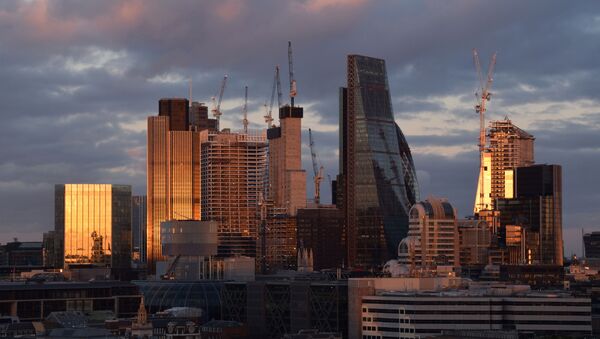The last ten years have seen many governments and regulatory institutions argue that tougher rules and regulations have been implemented onto the banking sector, since the financial crash of 2008-2009, in order to avoid the kinds of waste, fraud and criminality which was revealed during the Great Recession.
Michael Roberts has worked as an economist with investment research firms in the City of London for over 30 years. Mr Roberts, who authored The Great Recession: Profit cycles, economic crisis, explains that malfeasance and fraud continue to plague the system and argues that a more direct approach is needed in order to deal with financial crime properly.
Sputnik: You've recently argued that "regulation does not work". What exactly do you mean by that?
Michael Roberts: Instead of many important services being publicly owned and accountable, in the last 30 years, they have been privatised and accountability for the likes of private social care, water, gas and telecomms has been delegated to appointed 'independent' regulators. In the case of finance, rather than direct ownership and control of the major banks and financial institutions, so-called regulatory authorities are supposed to ensure fair play, transparency and good governance. But scandal after scandal has shown that such regulation has failed to protect the public interest, improve efficiency and avoid fraud and corruption.
Sputnik: Can you give some key examples of how policy makers have sought to regulate the system that have nonetheless failed?
Michael Roberts: In the global banking system there are loads of cases of banks acting as money launderers for criminal operations, of providing tax evasion for rich individuals and corporations; of acting in cabal to fix interest rates and squeeze commissions. Regulators have failed to stop this; and usually arrive after the event rather than prevent it. And often when taking legal action, regulators fail to get convictions.The global financial crash produced hundreds of examples of fraud and sharp practice at the public expense, let alone generating huge job and income losses. But the reckless and greedy actions of bank executives went mostly unpunished - nobody went to jail and many kept their bonuses and lavish pensions. And not just in banking: more recent cases of outsourcing companies like Carillion reveal how public money was wasted, pension funds were drained, while huge dividends were paid to shareholders and yet 'regulators' failed to notice.
Sputnik: Isn't it simply possible that the reason certain regulations have failed is because they were inadequate and if the correct rules and regulations were applied then we would see that they do work?
Michael Roberts: Some of the finest brains have acted as regulators with a host of powers to intervene, but when companies are at arms length and there is no direct accountability, experience has shown that there is no real control. After the global financial crash, bank regulation was tightened to stop future crashes, but the scandals continued: from the Libor interest rate fixing to the Danske Bank money laundering and most recently with the Wirecard accounting fraud - all supposedly under strict regulatory monitoring.
Sputnik: Why do you think regulations have been failing in the manner you've described?
Michael Roberts: Often regulators were formerly working in the companies they then regulated, they are poachers turned gamekeepers but with a soft spot for their old firms, they become too cosy with former colleagues. Also the complex accounting processes in multi-nationals make it difficult for regulators to penetrate what is really happening (if they can be bothered). But most important, public accountability requires public ownership and democratic control. Then top executives are responsible not to shareholders but to the government and public, not just striving to make a profit at any cost but instead to meet public needs.
Sputnik: Does that mean that there are no potential policies to address systemic risk, corruption and criminality within the financial sector?
Michael Roberts: There are things that can be done: 1) international cooperation to end tax havens that allow the rich, corporations and criminals to stash away their money - estimated at 8 per cent of global GDP, tax revenue annually lost to governments worldwide 2) capital controls to check the movement of cash and assets across borders 3) taxation of financial transactions to catch some of the illegal and criminal flows. But above all, banks and major multinationals need to be under public control.
Sputnik: Should we be expecting another financial crash as a result of these systemic issues?
Michael Roberts: Tax evasion and money laundering continues. But above all, international banks operate to make money through speculative investment rather than provide a public service to customers (households and businesses). While that is the main objective of banks, investment houses, hedge funds and private equity, there is every possibility of a new systemic crash, especially in the climate of this COVID pandemic.




